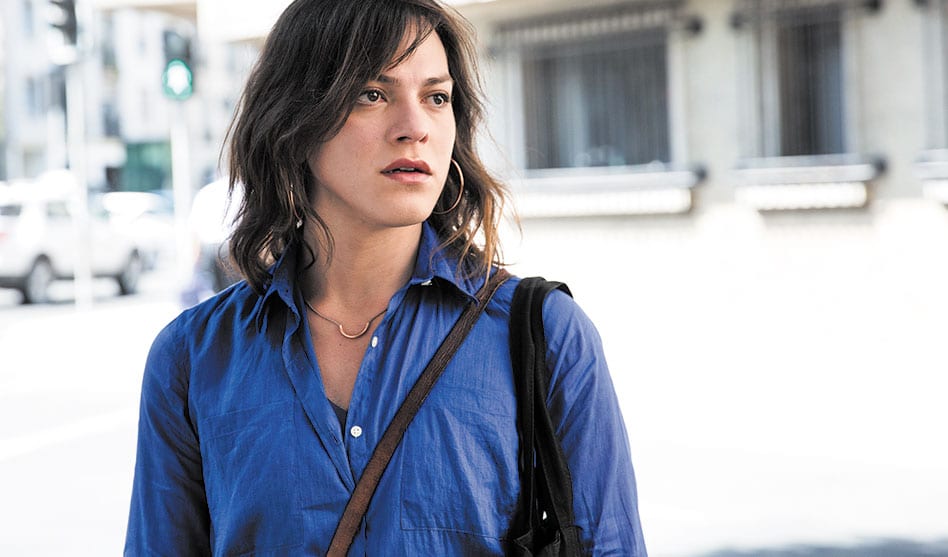Trans actress Daniela Vega exudes dignity in the Oscar-nominated ‘Fantastic Woman’
ARNOLD WAYNE JONES | Executive Editor
jones@dallasvoice.com
 Marina (Daniela Vega) is a waitress and aspiring nightclub singer in Santiago, happily partnered with Orlando, an older businessman. He comes to see her sing and plans a vacation for them to the country. They are dully contented until Orlando has palpitations and Marina rushes him to the ER, where he dies. But they aren’t married — in fact, marriage as an option is still something new. Marina is a transwoman, and while to the outside world they appear to be a boring hetero couple, the vagaries of law make what should be a time of grief an ordeal of accusations and personal attacks.
Marina (Daniela Vega) is a waitress and aspiring nightclub singer in Santiago, happily partnered with Orlando, an older businessman. He comes to see her sing and plans a vacation for them to the country. They are dully contented until Orlando has palpitations and Marina rushes him to the ER, where he dies. But they aren’t married — in fact, marriage as an option is still something new. Marina is a transwoman, and while to the outside world they appear to be a boring hetero couple, the vagaries of law make what should be a time of grief an ordeal of accusations and personal attacks.
And that’s just the beginning.
The power of many of the scenes in A Fantastic Woman are moments many in the gay community will sadly recognize from their own lives: A doctor skeptical that this “woman” is a family member; a cop questioning whether her name really is Marina; a son dismissively using the wrong pronoun (or intentionally using a masculine name). Almost as bad are the “savvy” bureaucrats who “know” Marina is a prostitute, or a “victim” of an older man, a gold-digger, or even a murderer. I mean, what else could she be? It’s death of dignity inflicted by a thousand tiny cuts. And of course, the only way to combat such disrespect is by being one’s self.
In some ways, A Fantastic Woman — Chile’s entry in the Oscars and one of the current five nominees for best foreign language film — plays out in fairly predictable beats. We can sense the arc of Marina’s travails. But if it is plotted with familiar tropes, it does so with emotional power. It has the same bracing impact as race-based lynchings in films about the Civil Rights Movement, or treatment of Jews during the Holocaust, or the genocidal purges in Africa or Central Europe. But the fact it is happening today, in broad daylight, during what should be an enlightened era of sexuality, makes it feel all the more horrific.
Director Sebastian Lelio touches on all the hot buttons — gay-bashing, gay bars, public humiliation, rejection — with an eye for memorable set-pieces: Marina walking against a wind (an unseen force of irresistible power); her face, wrapped in tape, distorting her features in her reflection; an intrusive and unnecessary physical exam — and Vega captures it all with a bruised stillness.
“I don’t know what I’m looking at — a chimera, that’s what,” Orlando’s ex-wife snipes, as if she’s a zoo animal paraded for her inspection. Vega inspects her back, though — not with anger, on bitterness, or even contempt, but almost sympathy: How sad is it that someone could maintain such hatred and ignorance and turn it on another human being?
There are no magical reveals in A Fantastic Woman — no courtroom speech, no triumphant public victory, no emotional 180 for the haters. It doesn’t need any. The film doesn’t need to change the characters’ minds, but the audiences’. It’s merely saying, “the struggle is real,” and daring you not to care. But you will. You have to.

